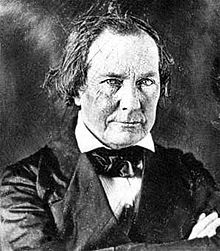Mirabeau B. Lamar | |
|---|---|
 | |
| 2nd President of the Republic of Texas | |
| In office December 10, 1838 – December 13, 1841 | |
| Vice President | David G. Burnet |
| Preceded by | Sam Houston |
| Succeeded by | Sam Houston |
| 1st Vice President of the Republic of Texas | |
| In office October 22, 1836 – December 10, 1838 | |
| President | Sam Houston |
| Preceded by | Lorenzo de Zavala (interim) |
| Succeeded by | David G. Burnet |
| 4th United States Ambassador to Nicaragua | |
| In office February 8, 1858 – May 20, 1859 | |
| President | James Buchanan |
| Preceded by | John H. Wheeler |
| Succeeded by | Alexander Dimitry |
| 3rd United States Ambassador to Costa Rica | |
| In office September 14, 1858 – May 20, 1859 | |
| President | James Buchanan |
| Preceded by | Solon Borland |
| Succeeded by | Alexander Dimitry |
| Personal details | |
| Born | August 16, 1798 Louisville, Georgia, U.S. |
| Died | December 19, 1859 (aged 61) Richmond, Texas, U.S. |
| Resting place | Morton Cemetery, Richmond, Texas 29°35′09″N 95°45′48″W / 29.5858°N 95.7633°W |
| Nationality | American, Texian |
| Political party | Democratic-Republican Party Democratic Party |
| Spouse(s) | Tabitha Jordan Lamar (1826-1830; her death) Henrietta Maffitt (m.1851) |
| Relations | Lucius Q. C. Lamar (brother) Lucius Q. C. Lamar II (nephew) John Basil Lamar (cousin) |
| Children | Rebecca Ann Lamar (born c. 1827) Loretto Evalina Lamar |
| Signature | |

Mirabeau Buonaparte Lamar (August 16, 1798 – December 19, 1859) was an American attorney, politician, poet, and leading political figure during the Texas Republic era. He was elected as the second president of the Republic of Texas after Sam Houston. He was known for waging war against bands of Cherokee and Comanche peoples to push them out of Texas, and for establishing a fund to support public education.